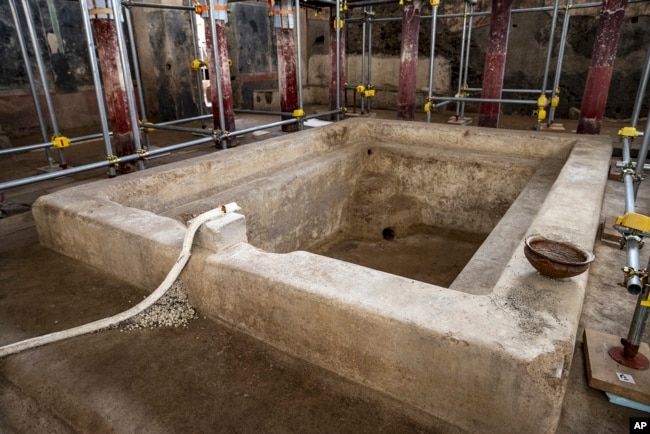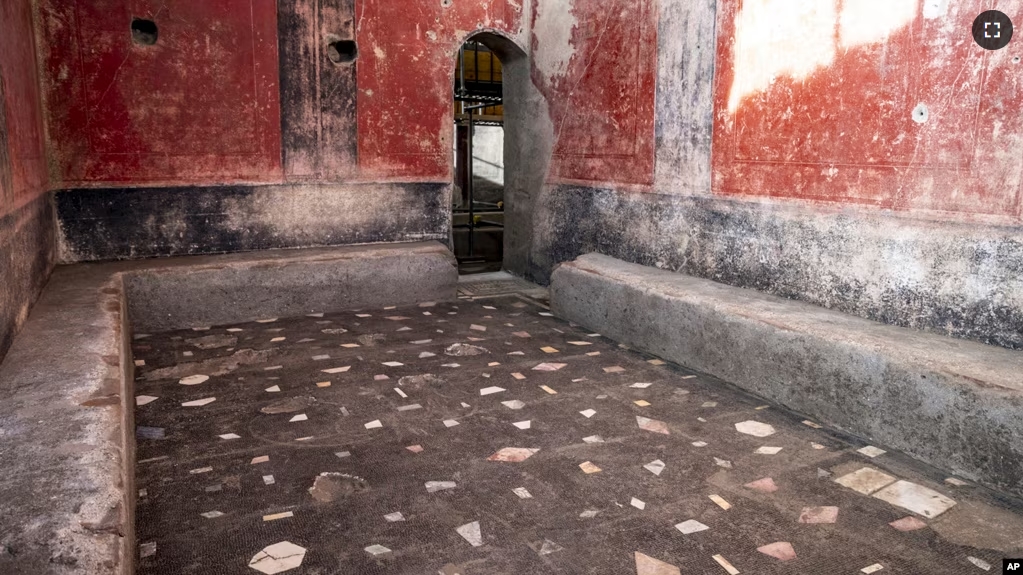Archeological research has uncovered another treasure of the ancient Roman city of Pompeii: a large private bathhouse.
The explosion of Mount Vesuvius in 70 AD buried Pompeii in thick ash, wreckage, and lava, or hot liquid rock. Archeologists are continuing to find remains of the city under the ground.
The bathhouse was part of a large private house, the scientists said. The bathhouse holds a series of rooms that would have provided hot, warm, or cold conditions. The art and design of the complex, including mosaic works, also suggest the owner was wealthy.
“We have here perhaps the largest thermal complex in a private house in Pompeii,” said Gabriel Zuchtriegel, director of the Pompeii Archaeological Park.
He explained that Pompeii’s powerful and wealthy set up large spaces at their homes to hold major gatherings for ceremonies and other purposes.
“It was an opportunity to show the wealth in which they lived and also to have a nice thermal treatment,” he said.

The baths were unearthed in the so-called Regio IX, a large central area of Pompeii Park that is still unexplored.
Recently, archeologists working in the same area found a bakery, a laundry and two homes. They also found the bones of three people who died in the volcanic burst.
Pompeii was not the only city destroyed in the explosion. It also buried the city of Herculaneum.
Zuchtriegel said wealthy citizens of Pompeii often would first take a bath and then attend a banquet, or a big meal. The private thermal complex permitted them to do so together at the home where the banquet was held.
“There is room for about 30 people who could do the whole routine, and that could also be done in public baths. So there is the caldarium, a very warm environment, and also a large tub with cold water,” he said.
I’m Caty Weaver.
The Associated Press reported this story. Caty Weaver adapted it for VOA Learning English.
______________________________________________________
Words in This Story
bathhouse – n. a building equipped for bathing
mosaic –n. the covering of a wall that is made of main small pieces and which shows a picture or design
thermal – adj. of, relating to, or caused by heat
opportunity – n. a favorable combination of circumstances, time, and place
bakery – n. a place for baking or selling baked goods
laundry – n. a business where clothes or linens are washed
routine – n. a standard or regular way of doing something
tub –n. a large, round container big enough to clean clothes or to take a bath in
